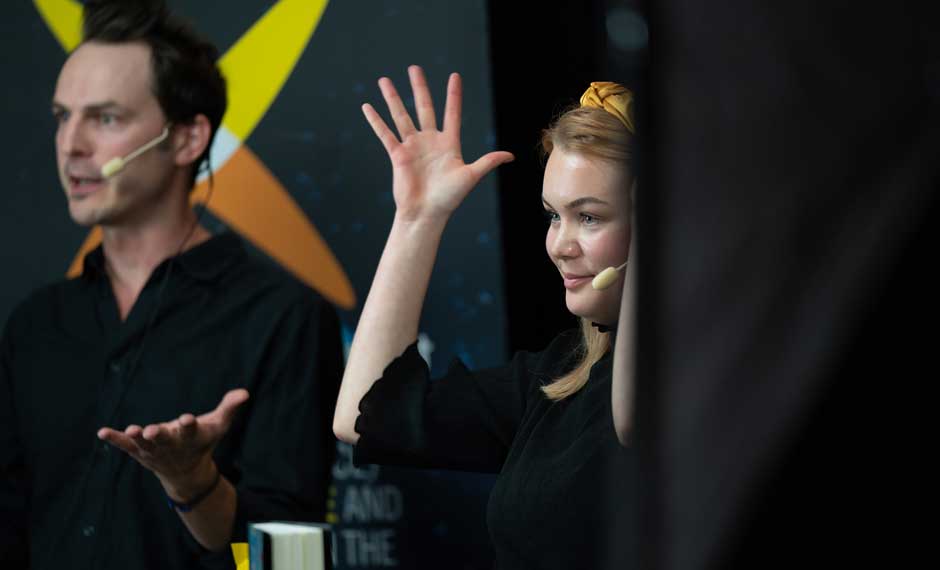”Science for everyone in a changing world” was the theme of VA (Public & Science)’s annual conference held on 14 October 2020. Known as VA Day, the event was held via Zoom with speakers participating both virtually and from a studio in Stockholm.
Guest speakers included Matilda Ernkrans, Minister for Higher Education and Research; and a wealth of Swedish and international contributors providing different perspectives on the role of science in the current crisis and the ways in which it is being affected.
To start the conference, VA’s Secretary General, Cissi Askwall, presented the latest findings in VA’s ongoing study to investigate how people in Sweden are receiving and interpreting information about the ongoing Covid-19 pandemic. She particularly highlighted the levels of confidence that the Swedish public have in different professional groups, which comment about the coronavirus in the media. The results show higher public confidence in doctors and healthcare professionals, government officials and researchers, whereas public confidence in politicians and journalists is much lower.
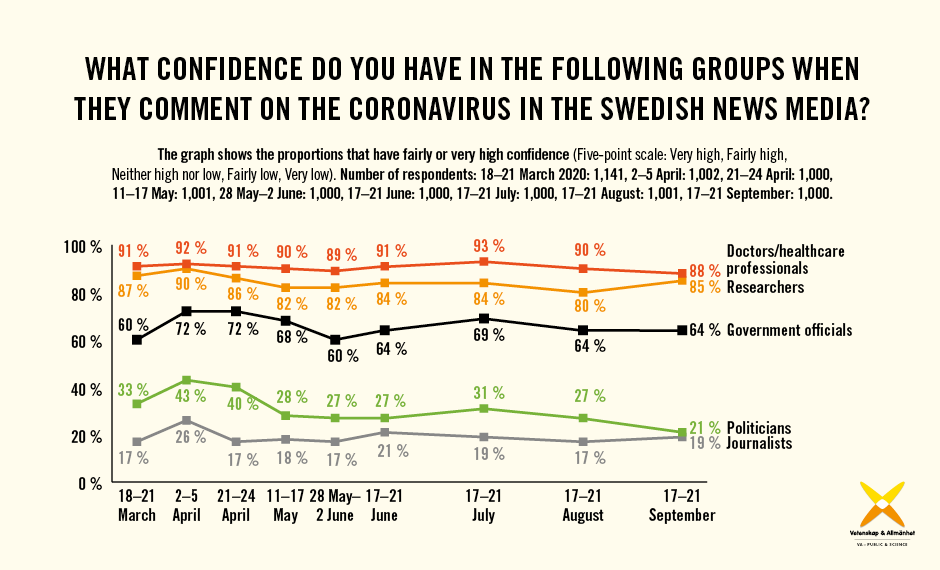
Science and the pandemic from different perspectives
This was followed by three panelists discussing the main challenges for science and their own areas of work in light of the corona pandemic:
Ulrika Björkstén, Head of Swedish Radio’s Science Department, highlighted some of the challenges of reporting on the coronavirus, particularly dealing with huge amounts of non peer-reviewed research. She explained how different editorial departments are now working more closely together in order to pool competences and that great care is taken to ensure that a wide range of researchers’ opinions are taken into consideration.
Bengt Kristensson Uggla, Professor of Philosophy, Culture and Management at Åbo Akademi University spoke about how the pandemic has highlighted how necessary and complex science actually is, and how societal challenges, such as the pandemic and the climate crisis, cannot be tackled without science. He also stressed the need for the public to have a better understanding of the scientific process and called for a new alliance between research and democracy.
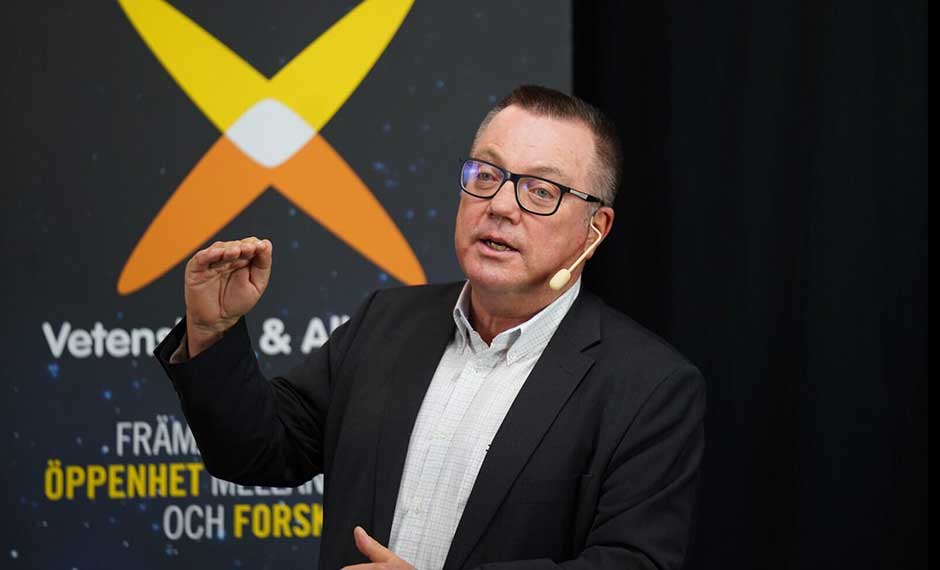
Rozerin Orucoglu, Director of Global Village, a non-profit association that works with integration, diversity, social sustainability and gender equality issues, talked about the results of their recent study to investigate the views of people living in 60 of Sweden’s most deprived areas on a range of societal issues. She stressed that statistics are often generalised for the whole country but that big differences exist among different socio-economic areas within Sweden. Their study has highlighted low confidence in societal functions, such as healthcare, in deprived areas of Sweden, particularly in conjunction with the corona crisis. She called for more targeted actions aimed at different groups in society, such as identifying ways to provide better access to information and translating important information into other languages.
International perspectives
An international outlook was also provided through pre-recorded conversations conducted by the moderator Anders Sahlman in order to find out how science communication organisations in other countries around the world have been responding during the pandemic.
Providing a European perspective, Annette Klinkert, Executive Director of the European Science Engagement Association, explained that many organisations within the EUSEA network organise large science festivals and have rapidly had to rethink and adapt their activities. However, many were taking the opportunity to reshape traditional concepts, finding ways to deliver events digitally and subsequently reach larger audiences at a lower cost.
Rodrigo Tapia, who works in the Science and Society Division at the Ministry of Science, Technology, Knowledge and Innovation in Chile, talked about how the pandemic has impacted their work, leading to a rethinking of their strategy and a huge shift to digital activities. They also see it as an opportunity to make science more explicitly relevant to people, to create interesting experiences and to take advantage of the public’s increased interest in science and thirst for content.
India was the final stop with a conversation with Sarah Iqbal, Head of Communications and Public Engagement DBT/Wellcome Trust India Alliance. Sarah spoke about the importance of getting the public to think critically and logically about health and science-related information and creating meaningful connections with the public. With 70% of the population of India living in rural areas, it is vital to work at grassroots level. She also spoke of an opportunity to leverage popular culture to bridge the gap between science and society, citing the power of the entertainment industry in India.

Successful digital public engagement
Participants could then select between two parallel sessions. The first showcased examples of initiatives that engage people in digital arenas and tips for running successful online events.
Lena Söderström, Project and Communications Manager at Vetenskap & Allmänhet shared insights about how to run interactive digital events, stressing the importance of ensuring a range of different and interesting activities and experiences. She highlighted the programme of an online conference for science communicators around the world run by Falling Walls Engage Hub Sweden, hosted by VA, which included pitches, debates, networking coffee breaks, small group discussions, singing and even some meditation.
Nina Kirchner, Director for the Bolin Centre for Climate Research, talked about how they successfully turned their annual climate festival into an online festival at short notice in spring. The festival engaged 2,000 participants, very similar to the number that their physical event usually attracts, and around 100,000 interactions on social media. One key aspect was recording much content beforehand rather than relying on live broadcasting.
The University of St Andrews in Scotland has also been finding ways to take some of their public engagement activities online. Mhairi Stewart, Head of Public Engagement with Research, highlighted activities such as their Backyard Bioblitz, Ask Me Anything and The XX Factor. Her tips included targeting existing communities and groups to start building audiences plus aiming for multiple points of contact in order to have more meaningful interaction with members of the public. She also stressed the need to be aware of who you are not reaching online.
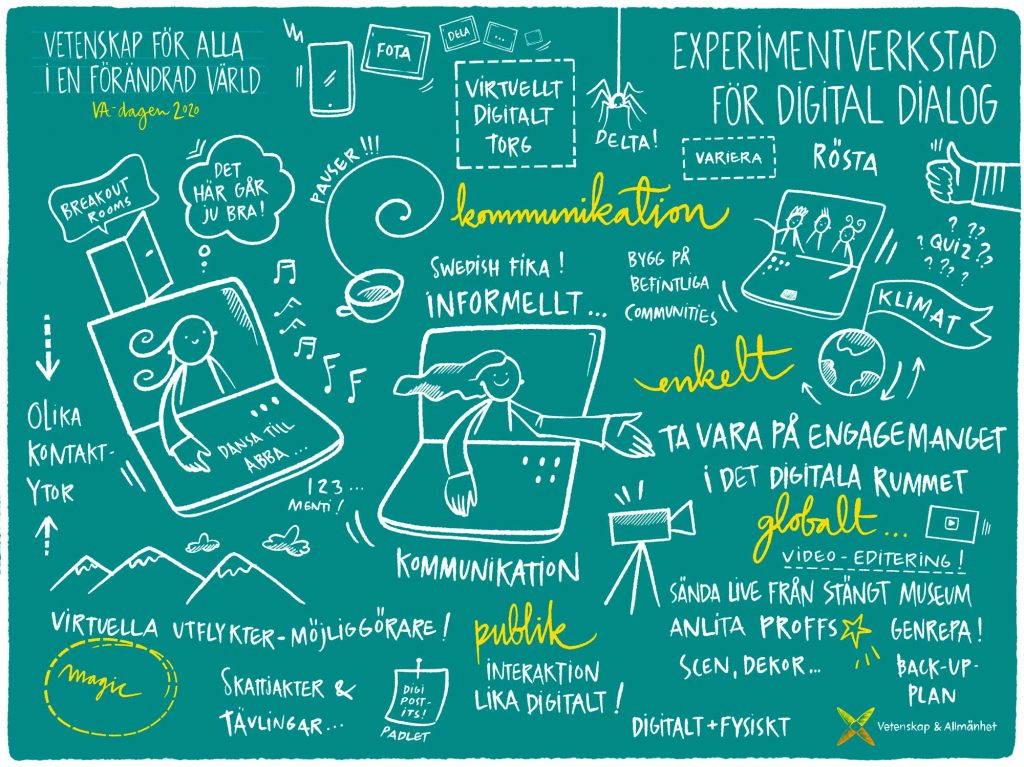
Making research accessible to all
The second parallel session discussed whether it is possible for research to reach and engage everyone. Johanna Mårtensson, Deputy Head of Operations at ABF, mentioned how conspiracy theories and public resistance to vaccination are a way for people to unite in a world that can be perceived as complex, and pointed out that these types of theories are not prevalent in the homes of those with higher levels of education.
Morgan Olofsson, Communications Director at MSB, talked about the communication tools being used during the pandemic, highlighting the posters that can be seen in many cities during the pandemic to encourage people to wash their hands and keep their distance. In a time, when mass communication is perceived as dead, people are returning to old proven sources of communication.
Freelance journalist, Jack Werner, spoke about his fact-checking TV series ‘Källkoll corona’ and his upcoming UR (Swedish Educational Broadcasting Company) series ‘Källkoll USA election’, and the challenge of describing the forthcoming American election in a simple way. He spoke about how journalism is often a ”gut feeling business” and that there can be a lot of friction when journalism and science meet, but when the two unite, the outcome can be very powerful.
Open science and academic freedom
VA Day also featured a pre-recorded interview with Matilda Ernkrans, Minister for Higher Education and Research. The Minister spoke about how that the position of science has been strengthened during the pandemic and that researchers’ increased media presence has resulted in researchers becoming a much closer part of people’s everyday lives. She also spoke about how the pandemic has highlighted the importance of Swedish research as well as the cooperation that happens at an international level. Finally, she emphasised the importance of open science, academic freedom and lifelong learning, which will also be reflected in the forthcoming Swedish research bill.
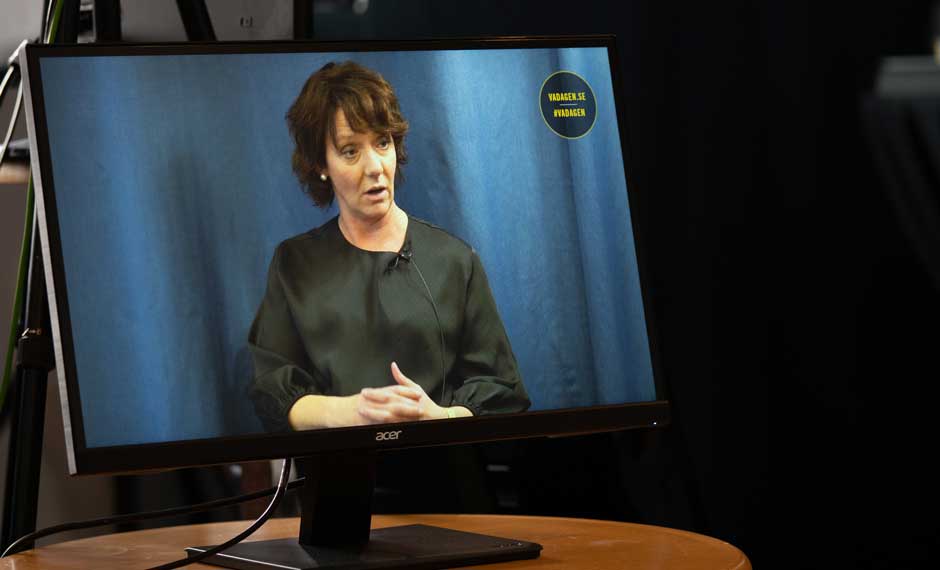
Afterwards, participants were split into smaller groups to discuss ways in which to make research more accessible to everyone. Comments submitted via Mentimeter included: “More science journalists. New innovative meeting places for researchers and the general public. Ensure sufficient resources within research for communication activities. Research funders to set requirements for science communication.”
VA’s Chair, Ann Fust, concluded the conference by stressing the value of hearing different perspectives on the role of science during the pandemic, and pointing out that VA has both a responsibility and an opportunity to work with its around 100 members to increase engagement in the issues discussed.
The conference was followed by informal networking and a quiz.
